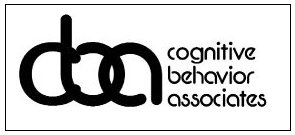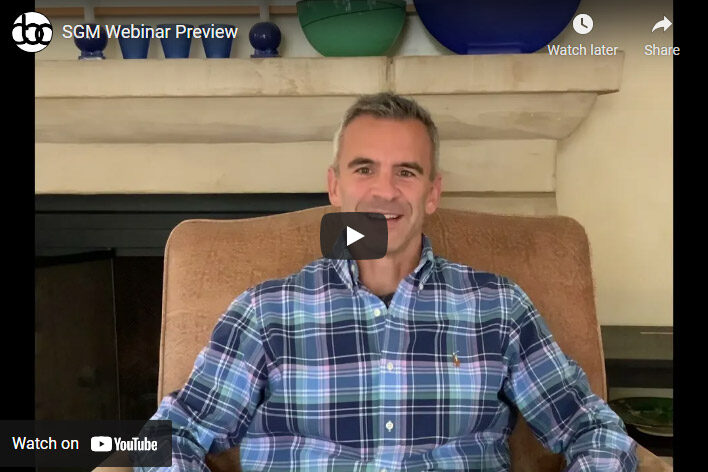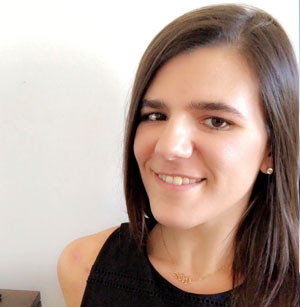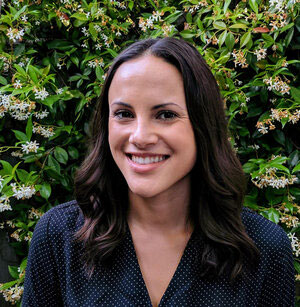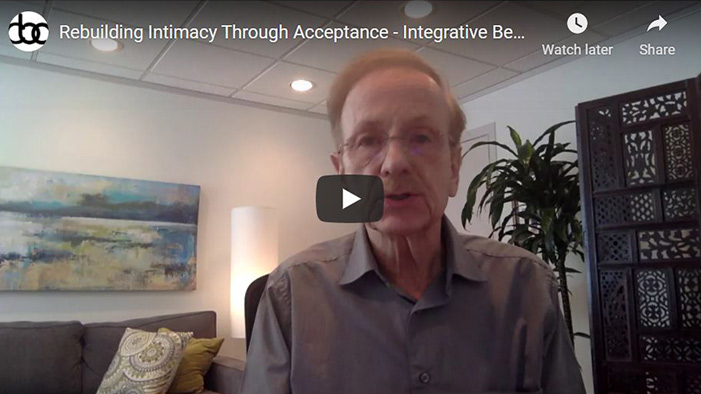Course Catalogue
How To Use Core Principles Of Cognitive Behavior Therapy For Psychosis (Cbtp) In Your Practice
Teaching Mindfulness: Bringing Mindfulness Into Individual Therapy
How Effective Are Mutual Help Groups For Addictive Problems?
Sexual and Gender Minority Stress: Pride and Prejudice
The Inhibitory learning Model of Exposure: Theory and Application
Applying and Understanding Cognitive Processing Therapy as Treatment for PTSD
The Unified Protocol for Transdiagnostic Treatment of Emotional Disorders (UP)
Trauma Conceptualization and Treatment: Re-Wiring Survival Instincts toward Healing
OCD-101 - Assessment and Treatment Planning
Cognitive Behavioral Analysis System of Psychotherapy (CBASP)
Rebuilding Intimacy Through Acceptance - Integrative Behavioral Couples Therapy (IBCT)
Irritable Bowel Syndrome Managed Through Mind-Body Treatment
Transgender Competence in the Therapeutic Setting
Strengths-Based Parenting Strategies that Work
Treating Psychosis Utilizing Cognitive Behavior Therapy
How to Use Core Principles of Cognitive Behavior Therapy for Psychosis (CBTp) in Your Practice
About Presenter:
- Dr. Emily Owens is a psychologist at Cognitive Behavior Associates and an Assistant Clinical Professor at the UCLA Department of Psychology. She is a Diplomate of the Academy of Cognitive & Behavioral Therapies and Director of Training for the Cognitive Behavior Therapy Institute. Dr. Owens has completed several intensive training courses in CBTp and feels passionate about training more clinicians to be competent in CBTp to address the unmet needs of this population.
1.5 CE credits provided
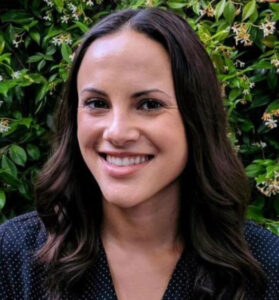
Emily Owens, Ph.D.
- Cognitive Behavior Therapy for Psychosis (CBTp) utilizes a large set of evidence-based practices that are effective for psychotic-spectrum disorders. This webinar will focus specifically on assessment and interventions that are useful for your general, "everyday" psychotherapy practice. Rather than a typical "Introduction to CBTp" course (recommendations for such courses will be provided during the training), this course will focus on CBTp skills that are applicable for individuals presenting with other primary diagnoses but struggle with subthreshold, transient, or prodromal symptoms of psychosis. Topics will include strategies to manage hearing voices, general suspiciousness, and the relationship between trauma and psychosis.
Intermediate level:
This course is best for established professionals, early career professionals and students who already have a background in and foundational knowledge of Cognitive Behavior Therapy.
Webinar objectives:
- Recall how to give psychoeducation to clients who report symptoms of psychosis.
- Employ CBTp strategies that target specific needs of clients.
- Adapt general CBT interventions for individuals reporting symptoms of psychosis.
Click here to download a printable PDF flyer.
$29.95
Teaching Mindfulness: Bringing Mindfulness into Individual Therapy
Friday, Apri 21ST 9-10:30AM PT
Presenters:

Jonathan Westman, Ph.D.

Alexia Holovatyk, Ph.D.
LEARNING OBJECTIVES:
- Identify the four foundations of mindfulness
- Explain similarities and differences between formal and informal mindfulness practices
- Utilize two short mindfulness practices
Click here to download a printable PDF flyer.
$29.95
HOW EFFECTIVE ARE MUTUAL HELP GROUPS FOR ADDICTIVE PROBLEMS?
Friday Oct 28, 2022 9:00-10:30AM PDT
Presented by Tom Horvath, Ph.D., ABPP
ABOUT THE PRESENTER:
Dr. Horvath is a California licensed (PSY7732) and board certified clinical psychologist. He has specialized in addictive problems since 1985. He is the founder and president of Practical Recovery Psychology Group in San Diego, past president of the American Psychological Association (APA)’s Society of Addiction Psychology (Division 50; the world’s largest organization of addiction psychologists), and author of Sex, Drugs, Gambling & Chocolate: A Workbook for Overcoming Addictions, recommended as a self-help book
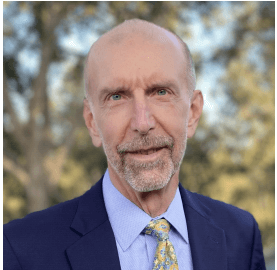
by the Association for Behavioral and Cognitive Therapies (ABCT). He has been an instructor of graduate addiction courses at Alliant International University and the University of San Diego. For 20 years he was the volunteer president of SMART Recovery (established 1994), an international non-profit offering free, self-empowering mutual help groups for addictive problems. He continues to serve on SMART’s US board of directors, and the Global Research Advisory Council of SMART Recovery International. He was the 2022 recipient of APA Division 50’s award for Distinguished Career Contributions to Public Interest. The citation stated that he is “a leading force in SMART, promoting growth, international expansion, and aligning the organization’s values with evolving addiction science.” He is a fellow of the San Diego Psychological Association, ABCT, and APA. He regularly presents to professionals on the self-empowering approach, addiction treatment, and mutual help.
WEBINAR OBJECTIVES:
- Recall that AA and professional treatment (including CBT) appear to be equally effective for treating alcohol use disorder.
- Recall that AA and several other mutual help groups appear to be equally effective.
- Recall that mutual help groups appear to operate by the same underlying set of mechanisms, regardless of surface differences.
DESCRIPTION OF PROGRAM:
AA is well established as being equally effective to professional treatment (including well-implemented CBT) for alcohol use disorder, especially for long-term abstinence outcomes. Several studies suggest that other mutual help groups (including SMART Recovery, LifeRing, and Women for Sobriety) are equally effective to AA. Two large studies comparing these groups are in process. Emerging evidence suggests that all mutual help groups work by similar mechanisms. The five primary mechanisms appear to be increased confidence, bonding and connection with others, increased coping ability, the opportunity to give back, and learning about a new way of living without substance use. Older evidence suggests that a wide range of psychotherapies for alcohol problems are equally effective, and that there are probably similar mechanisms of action across different psychotherapies. Collectively, these findings suggest that there are only a few mechanisms of change working across both mutual help and psychotherapy. The clinical implications are that clients can be encouraged to attend the mutual help group of their choice, that not attending any group should be acceptable, and that presenting surface differences between groups may persuade a client to investigate one group even if another group is not of interest. Participants will be better able to accept and address a client's refusal to attend mutual help, or to attend a specific mutual help group, so that the therapeutic relationship need not become strained over conflicts about mutual help group attendance. Presentation will also inform participants about the range of mutual help groups available, about how to summarize these groups to clients, and how to encourage client exploration of the groups available to them.
Click here to download a printable PDF flyer.
$29.95
Sexual and Gender Minority Stress: Pride and Prejudice
Live Webinar: Feb 4, 2022 10-11:30AM PT
Presenters: Greg Stanford, Psy.D., Jae Puckett, Ph.D., Trevor Hart, Ph.D.
Discussant: Joel L Becker, Ph.D.
Webinar objectives:
- Name an assessment tool for SGM stress
- Define two gender minority stressors
- Identify two evidence-based practices for SGM stress
Topics to be addressed in this workshop:
- History and definition of sexual and gender minority stress
- Application of SGM model to trans and gender diverse clients with case examples
- Applying SGM model to sexual behavior
- Introduction of EBTs to address minority stress
The workshop will conclude with a 20-30 minute Q+A / panel discussion. Please bring all of your questions!
Click here to download a printable PDF flyer.
$29.95
The Challenge of Change: How Integrative Behavioral Couple Therapy (IBCT) Creates Acceptance and Change
Friday, April 2nd, 2021 9:00AM - 10:30AM PST
Presented by Andrew Christensen, Ph.D.
About Presenter:
Dr. Andrew Christensen is Distinguished Research Professor of Psychology at the University of California, Los Angeles. He is the co-developer of Integrative Behavioral Couple Therapy, an evidence based treatment for couples. For the last 20 years, he has been training therapists throughout the world in IBCT, especially therapists in the United States Department of Veterans Affairs, which adopted IBCT as one of its evidence-based treatments.
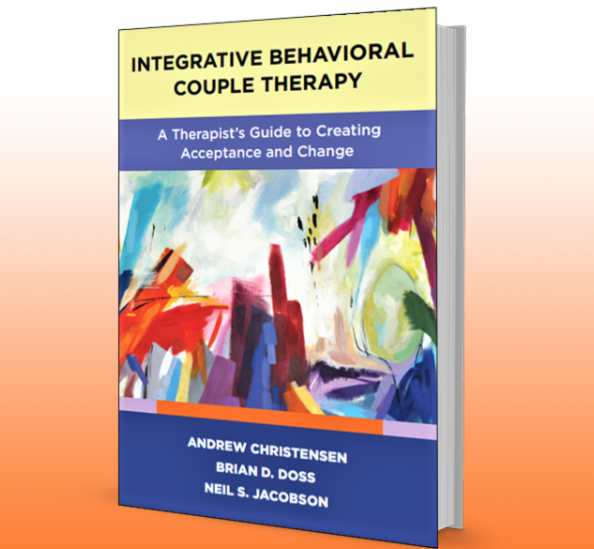
Couples often struggle to create change in each other and the relationship. Those efforts often backfire, leading to a persist/resist pattern as one pushes for specific changes and the other resists or pushes back. In this webinar, Dr. Andrew Christensen will discuss some of the challenges for creating durable change in couples and the strategies that Integrative Behavioral Couple Therapy uses to create those changes.
Webinar objectives:
- To link change theories from Individual Therapy, such as the Trans-theoretical Model of Change and Motivational Interviewing, to Couple Therapy;
- To delineate two important kinds of changes in couples;
- To describe how Empathic Joining and Unified Detachment in Integrative Behavioral Couple Therapy lead to both kinds of changes.
1.5 CE credits provided
Cognitive Behavior Therapy Institute (CBTI) is approved by the American Psychological Association to sponsor continuing education for psychologists. CBTI maintains responsibility for this program and its content.
Joel L. Becker, Ph.D., Founder and Director
Click here to download a printable PDF flyer.
$29.95
THE INHIBITORY LEARNING MODEL OF EXPOSURE: THEORY AND APPLICATION
Presented by Amanda Loerinc Guinyard, Ph.D.
Exposure is the gold-standard approach for the treatment of anxiety disorders. Traditionally, the key ingredient in exposure has been anxiety reduction over time via repeated exposure to a feared stimulus (i.e., habituation). New research suggests that while habituation is effective, learning theory and violation of expectancy is just as effective - if not more effective - than the habituation approach to exposure. The inhibitory learning model of exposure is intended to violate negative expectancies about a feared stimulus and enhance new learning. This approach is effective in reducing symptoms of anxiety across the anxiety disorders.
Licensed psychologist Amanda Loerinc Guinyard, Ph.D. will describe the evidence supporting the inhibitory learning model of exposure in addition to describing the difference between the habituation and inhibitory learning models. The webinar will include an instruction on applying the inhibitory learning model to specific anxiety disorders, how to conduct an exposure assessment, developing an exposure list, and the essential questions to ask pre- and post- exposure to enhance learning.
Webinar objectives:
-
- Understand the differences between the habituation model of exposure and the inhibitory learning model of exposure.
- Learn how to conduct a thorough assessment prior to engaging in exposure and understand how to develop an exposure list from this assessment.
- Learn how to assign exposures and understand the specific questions to ask pre- and post-exposure.
About Presenter:
Amanda Loerinc Guinyard, Ph.D. is a Licensed Clinical Psychologist in California and Massachusetts and specializes in cognitive behavioral therapy (CBT) and dialectical behavior therapy (DBT) for adolescents and adults with anxiety disorders, depression, and pervasive emotion dysregulation. Dr. Loerinc Guinyard received her Ph.D. in 2018 from UCLA where she specialized in the assessment and treatment of anxiety disorders and depression under the mentorship of Dr. Michelle Craske. She completed her clinical internship at the VA Sepulveda Ambulatory Care Center and her postdoctoral fellowship at CBT California. In addition to her clinical practice, Dr. Loerinc Guinyard is an Assistant Project Scientist in the UCLA Department of Psychiatry and is certified in CBT by the Academy of Cognitive and Behavioral Therapies.
1.5 CE credits provided
Cognitive Behavior Therapy Institute (CBTI) is approved by the American Psychological Association to sponsor continuing education for psychologists. CBTI maintains responsibility for this program and its content. Joel L. Becker, Ph.D., Founder and Director
Click here to download a printable PDF flyer.
$29.95
APPLYING AND UNDERSTANDING COGNITIVE PROCESSING THERAPY AS TREATMENT FOR PTSD
Presented by Greg Stanford, Psy.D. & Emily Owens, Ph.D.

Cognitive Processing Therapy (CPT) is a cognitive-behavioral treatment for Posttraumatic Stress Disorder (PTSD). Evidence over the past several decades has shown that CPT is effective in reducing PTSD symptoms related to a variety of traumatic events including child abuse, rape, combat, and natural disasters, making CPT a "best practice" for PTSD. CPT Coach is a free application (app) for mobile devices developed by the VA's National Center for PTSD. CPT Coach was created to increase convenience and adherence for patients and clinicians working through the CPT treatment manual. It is intended to be used as a treatment companion for a patient working with a therapist trained in CPT. Licensed psychologists Greg Stanford, Psy.D. and Emily Owens, Ph.D. will describe the evidence supporting CPT as a treatment approach for PTSD, as well as an overview of the theoretical basis of CPT. The webinar will include an instruction on the application of the protocol using the CPT Coach app to an individual with PTSD.
Webinar objectives:
-
- Describe the evidence supporting CPT as a treatment approach for PTSD.
- Understand the theoretical basis of CPT and how treatment leads to improvement in symptoms of PTSD.
- Introduce and illustrate using the "CPT Coach" app to a case study of an individual with PTSD.
About Presenter:
Greg Stanford, Psy.D., Associate Clinical Director of CBA, received his Psy.D. from California School of Professional Psychology in 2009. Dr. Stanford has completed trainings with Dr. Judy Beck and is a Diplomate candidate with Academy of Cognitive Therapy. He specializes in cognitive behavioral techniques related to ADHD, Gender and Sexual Minority Stress, Insomnia, Panic, and Trauma. Dr. Stanford joined CBA in 2017 and became Associate Clinical Director and Co-Director of CBTI in 2019. Emily Owens, Ph.D. is a staff psychologist at CBA and Director of CBTI. Dr. Owens received her Ph.D. in 2018 from UCLA where she specialized in assessment and intervention for serious mental illness (SMI). She completed her clinical internship and postdoctoral fellowship at the West LA VA, where she trained in various clinics applying cognitive-behavioral techniques to SMI, homelessness, trauma, and substance abuse. In addition to clinical practice at CBA, Dr. Owens is a Clinical Instructor at UCLA Department of Psychology. No conflicts of interest to disclose.
1.5 CE credits provided
Cognitive Behavior Therapy Institute (CBTI) is approved by the American Psychological Association to sponsor continuing education for psychologists. CBTI maintains responsibility for this program and its content. Joel L. Becker, Ph.D., Founder and Director
Click here to download a printable PDF flyer.
$29.95
The Unified Protocol for Transdiagnostic Treatment of Emotional Disorders (UP)
Presented by Laura Payne, Ph.D., & CBTI
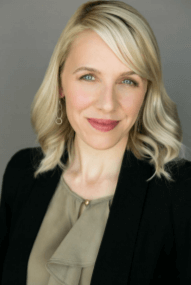
Evidence over the past several decades has underscored commonalities among various emotional disorders, including anxiety and depression. This suggests the possibility of distilling the critical components of cognitive-behavioral therapy (CBT) interventions into a single, unified treatment approach that could facilitate dissemination and may even be more effective. The Unified Protocol for Transdiagnostic Treatment of Emotional Disorders (UP) is an evidence-based therapy approach that can be applied to any disorder with an emotional component. Laura Payne, Ph.D., licensed psychologist and original co-author of the UP, will describe the evidence supporting a unified treatment approach, as well as provide a detailed overview of the protocol. The webinar will include instruction on the application of the protocol to a case of an individual with anxiety and comorbid depression.
Webinar objectives:
-
- Describe the evidence supporting a transdiagnostic, unified treatment approach.
- Identify the specific components (modules) of the UP and provide an overview of how to deliver them.
- Illustrate how to apply each component to a case study of an individual with anxiety and comorbid depression.
About Presenter:
Laura Payne, Ph.D., is an Assistant Adjunct Professor and clinical psychologist specializing in central mechanisms and psychological factors, such as depression, anxiety, and emotion regulation, related to pain. Dr. Payne received her Ph.D. in 2007 from Boston University, where she worked with Dr. David Barlow as an original developer and co-author of the Unified Protocol. She completed her postdoctoral fellowship with the Pediatric Pain Program at the David Geffen School of Medicine at UCLA. During her time at UCLA, Dr. Payne was awarded numerous NIH grants, including a postdoctoral research award, as well as a career development award to examine central pain mechanisms in primary dysmenorrhea (menstrual pain). Dr. Payne is now continuing her work in menstrual pain with an additional research grant that aims to identify behavioral and neural phenotypes of adolescent girls with menstrual pain that may predict the development of chronic pain conditions. She continues to be actively involved with the Unified Protocol and regularly trains and supervises psychiatry residents in the use of the protocol through the CBT Clinic at the UCLA Department of Psychiatry. Dr. Payne has also written numerous articles and book chapters on the application of the Unified Protocol to emotional disorders and pain.
1.5 CE credits provided
Cognitive Behavior Therapy Institute (CBTI) is approved by the American Psychological Association to sponsor continuing education for psychologists. CBTI maintains responsibility for this program and its content. Joel L. Becker, Ph.D., Founder and Director
Click here to download a printable PDF flyer.
$29.95
TRAUMA CONCEPTUALIZATION AND TREATMENT: RE-WIRING SURVIVAL INSTINCTS TOWARD HEALING
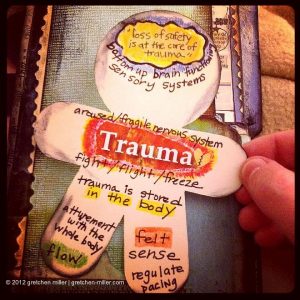
A large percentage of individuals experience trauma during their lifespan and a proportion of these individuals develop a diagnosis of PTSD. Even for those who do not receive a diagnosis of PTSD, the experience of trauma could lead to other mental health concerns and functional impairment. Amanda Gorlick, Ph.D., licensed psychologist, will discuss the identification and treatment of trauma-related symptoms and impairment. The webinar will include a discussion of theories, current literature, and evidence-based practices to inform conceptualization and treatment in clinical practice. Vignettes will be used.
This workshop is designed to help you:
- Describe the various types of trauma and symptom presentations in diverse populations.
- Apply a broad and encompassing conceptualization of PTSD and trauma-related symptoms from a survival/protection perspective, which includes an understanding of the basic neurobiology of fear.
- Utilize a combination of empirically-supported treatment techniques along with non-specific therapy factors to target trauma and associated symptoms.
About the Presenter: Amanda Gorlick, Ph.D. is a licensed psychologist who received her doctorate in Clinical Psychology from Loma Linda University. She completed an APA-accredited internship at the Phoenix VA Healthcare System and an APA-accredited postdoctoral fellowship at the San Diego VA Healthcare System. Her interests include treatment of trauma-related disorders, sleep-related disorders, and anxiety disorders. Dr. Gorlick has extensive training providing individual and group therapy for a wide range of mental health concerns as well as coping with chronic disease. She utilizes evidence-based practices, while appreciating the uniqueness of clients and the importance of the therapeutic relationship.
1.5 CE Provided
Cognitive Behavior Therapy Institute (CBTI) is approved by the American Psychological Association to sponsor continuing education for psychologists. CBTI maintains responsibility for this program and its content.
Click here to download a printable PDF flyer.
$29.95
OCD 101 - ASSESSMENT & TREATMENT PLANNING
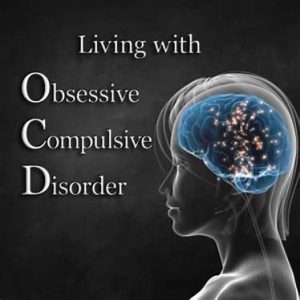
With more than 3 million cases per year, Obsessive Compulsive Disorder (OCD) is a common mental health disorder that impacts individuals of all ages. Defined as a chronic and long-lasting disorder, individuals have uncontrollable, reoccurring thoughts (obsessions) and engage in behaviors (compulsions) that are experienced as inescapable urges. In this webinar Joel L. Becker, Ph.D., clinical psychologist and Clinical Professor at the University of California, Los Angeles (UCLA) discusses the assessment, potential co-occurring health issues, and the basic components of OCD treatment planning. Upon completion of the Webinar clinicians will be able:
- To create a treatment plan that has inhibitory learning as an goal
- To describe “deepened extinction” and apply that in exposure treatments
- To apply and demonstrate how “linguistic processing” is based on “disruption theory”
ABOUT THE PRESENTER
Joel L. Becker, Ph.D. received his doctorate in 1977 from the University of Georgia, and was a Clinical Fellow in Psychology in the Department of Psychiatry at Harvard Medical School. During his years in Boston, Dr. Becker was on the clinical faculty of Harvard Medical School, Massachusetts School of Professional Psychology and United States Veteran’s Administration, and served as a consulting CBT practitioner at several psychoanalytical institutes. In 2005, Dr. Becker launched Cognitive Behavior Associates and the Cognitive Behavior Therapy Institute an APA approved CE sponsor. Dr. Becker has remained very active in the training of new clinicians. He is currently a Clinical Professor in the Department of Psychology at UCLA, where he teaches and supervises doctoral candidates in psychology.
$29.95
COGNITIVE BEHAVIORAL ANALYSIS SYSTEM OF PSYCHOTHERAPY (CBASP)

Jim McCullough developed Cognitive Behavioral Analysis System of Psychotherapy, or CBASP, to treat chronic depression. This treatment is based on the underlying theory that chronically depressed adults function at the pre-operational stage of cognitive development, having either not progressed further in the case of early onset depression, or having regressed in cognitive functioning in cases of late-onset depression.
This workshop is designed to help you:
- Understand why treatment, as usual, tends to be ineffective in treating chronic depression.
- Discern the mechanism of change and employ the two main interventions: Situational Analysis and Interpersonal Discrimination Exercise.
- Conceptualize interpersonal behavior of chronically depressed patients in order to determine their stimulus value and adopt optimal interpersonal style to bring about change.
After registering, you will receive a confirmation email containing information about joining the training. The cost is $29.95, and 1.5 CE credits are provided.
ABOUT THE PRESENTER
Vanessa Hurwitz received her Ph.D. from Fuller School of Psychology and interned at VAMC, WA (Spokane & Walla Walla). She completed a fellowship in CBT at Harbor-UCLA Medical Center, where she completed Dr. McCullough's CBASP training, received intensive CBASP supervision and provided training and supervision in the model. In addition, Dr. Hurwitz is certified by the Academy of Cognitive Therapy and a practitioner of CBT and DBT at the Tibor Rubin VA Medical Center.
RECOMMENDED READING
McCullough, J. P. (2003). Treatment for Chronic Depression: Cognitive Behavioral Analysis System of Psychotherapy. NY: Guilford Press.
$29.95
REBUILDING INTIMACY THROUGH ACCEPTANCE - INTEGRATIVE BEHAVIORAL COUPLES THERAPY

Couples often struggle with navigating differences and initiating positive behavioral changes in their relationship. Andrew Christensen, Ph.D., clinical psychologist and professor emeritus at the University of California, Los Angeles (UCLA) will discuss Integrative Behavioral Couples Therapy (IBCT) and how it works towards the twin goals of acceptance and change through a behavioral treatment framework.
This workshop is designed to help you:
- Distinguish IBCT from Traditional and Cognitive Behavioral Couples Therapy
- Conceptualize themes and patterns in relationships
- Understand IBCT strategies for resolving conflict and building intimacy
Andrew Christensen received his Ph.D. from the University of Oregon, interned at Rutgers University Medical School, and is a Distinguished Research Professor of Psychology in the Department of Psychology at the University of California, Los Angeles.
He has published over 150 professional articles on couples conflict and therapy, with his research cited in various publications including the Washington Post, New York Times, Newsweek, Time Magazine, and U.S. News and World Report.
Dr. Christensen is co-author of the influential scholarly book, Close Relationships (Freeman, 1983, reprinted in 2002), authored Acceptance and Change in Couple Therapy: A therapist’s guide for transforming relationships (1998, Norton) with Neil S. Jacobson, and most recently authored Reconcilable Differences (2000, 2014, Guilford) with Jacobson and Doss.
With support from the National Institute of Mental Health, Christensen and Jacobson conducted the largest clinical trial ever done evaluating the impact of couples therapy, including Integrative Behavioral Couple Therapy (IBCT; http://ibct.psych.ucla.edu/) the couples therapy protocol they co-developed.
In 2010, IBCT was adopted by the U.S. Department of Veteran’s Affairs as one of their evidence-based treatments. Additionally, with his former graduate student Dr. Brian Doss at the University of Miami and support from the National Institute for Child Health and Human Development, Dr. Christensen has developed an online, internet-based therapy approach for couples based on IBCT (www.ourrelationship.com).
Click here to download a printable PDF flyer.
$29.95
Irritable Bowel Syndrome Managed Through Mind-Body Treatment

Recent statistics indicate up to 22% of the U.S. population reports symptoms consistent with Irritable Bowel Syndrome (IBS), a functional bowel disorder defined as recurrent abdominal pain associated with altered bowel habits. Traditional medicine has had limited success in helping those suffering from IBS. Jayson Mystkowski, Ph.D., will discuss an IBS treatment protocol adopted from anxiety disorder treatments, providing an example of how mind-body treatments can help conditions that were once viewed as outside the realm of psychological intervention.
This Webinar is designed to help you:
- Summarize IBS diagnostic information.
- Recognize the extensive similarities between Panic Disorder and IBS, with specific focus on etiology, maintenance, and treatment.
- Apply CBT techniques from Panic Disorder treatment to clients suffering from IBS.
Click here to download a printable PDF flyer.
$29.95
STRENGTHS-BASED PARENTING STRATEGIES THAT WORK
Parents are often trying to juggle many demands at once, making it difficult to always be thoughtful about the way they are parenting their children. Lauren Shapiro, Ph.D., will focus on evidence-based parenting techniques that amplify a child's strengths, enhance the parent-child relationship, and teach children contingencies: when they behave well, good things happen; when they do not, there are logical, natural consequences.
This workshop is designed to help you:
- Explain the role of emotional awareness and regulation
- Create routines in the home and between parent-child
- Assess dysfunctional vs. effective parenting strategies that enhance the parent-child relationship
Click here to download a printable PDF flyer.
$29.95
TRANSGENDER COMPETENCE IN THE THERAPEUTIC SETTING
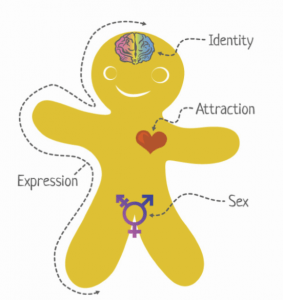
Gender minorities continue to be an under-served population, often presenting with previous/current harm(s) from healthcare providers, positive prognosis for therapeutic growth, and specific risk factors. Dr. Greg Stanford, Psy.D., WPATH will discuss the ethical and clinical considerations of working with transgender clients. Creating a safe environment, as well as identifying a practical level of competence regarding transgender issues will be presented. At the conclusion of this program, participants will be able to:
- Negotiate the concerns of transgender oppression such as individual, cultural, and institutional
- Identify non-medical transition (social transition) and medical transition (i.e., hormones and surgeries)
- Apply appropriate therapeutic skills as they relate to gender minority stress
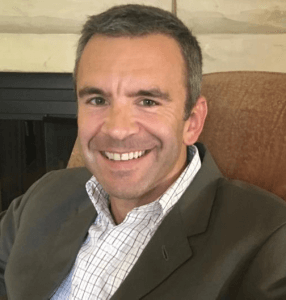
Dr. Greg Stanford, Psy.D., is a Licensed Psychologist with practices in Arcadia, Beverly Hills, and Cypress, California. He is a member of World Professional Association for Transgender Health (WPATH). He received his Psy.D. in clinical psychology from California School of Professional Psychology in 2009. He began his clinical training at Los Angeles LGBT Center (formerly Los Angeles Gay and Lesbian Center) in 2006.
His doctoral project consisted of a selective literature review of the harms, considerations, and need for affirmative therapy for survivors of sexual reorientation attempts, culminating in delivering a presentation to mental health professionals. He completed his postdoctoral internship at Ocean Park Community Center, providing services in shelter communities and with recently housed, formerly homeless individuals. Dr. Stanford has over 10 years of experience in serving the trans community.
$29.95
TREATING PSYCHOSIS UTILIZING COGNITIVE BEHAVIOR THERAPY

Melissa Magaro, Ph.D., provides an overview of CBT for Psychosis (CBTp). A treatment that addresses chronic and often debilitating psychotic spectrum illnesses characterized by hallucinations, delusional thinking, paranoia, and reduced social interaction and motivation.
Specifically, participants will learn:
- Individualized CBTp case formulation
- Key methodology utilized in CBTp
- Case management focused on empowerment and supportive recovery
$29.95
BIOFEEDBACK - AN ADJUNCT TOOL IN OPTIMMAL PATIENT CARE
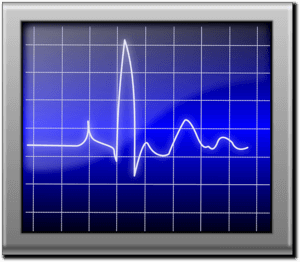
Dr. Megan Wagner, Ph.D., BCB will provide an overview of how biofeedback (BFB) can help clients self-regulate their physiological responses to stress, and how BFB can be used in combination with other treatments (e.g., psychotherapy, medication, physical therapy). Client responses measured include heart rate, heart rate variability, skin conductance, breathing rate, muscle tension, and peripheral blood flow. Research has found BFB to be an effective tool in the treatment of anxiety disorders, chronic pain, headache (migraine, tension, & mixed), hypertension, depression, motion sickness, Raynauld’s disease, TMJ, and others.
Specifically, participants will learn:
- The theoretical underpinnings of BFB
- How specific populations interface with the technology
- Integration of BFB into treatment planning and patient care
Dr. Megan Wagner received her Ph.D. in Clinical Psychology in 2011 from George Mason University in Fairfax, VA. While completing a postdoctoral fellowship at the VA Loma Linda Healthcare System she received specialized training in Clinical Health Psychology focusing on understanding and treating problems pertaining to the reciprocal relationship between psychological and physical health. Dr. Wagner is board certified in biofeedback therapy by the Biofeedback Certification International Alliance.
$29.95
CBT for the Treatment of Irritable Bowel Syndrome

Dr. Jayson L. Mystkowski's Tele-seminar CBT for the Treatment of Irritable Bowel Syndrome is now available for purchase for 1.5 Continuing Education credits, as well as to the general public.
